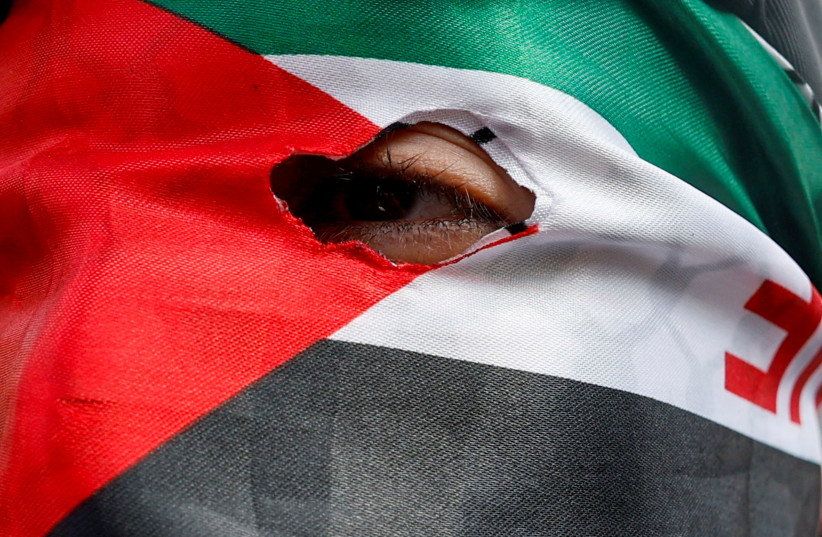At approx 1 a.m. on Monday morning, the IDF launched a counter-terror operation targeting terrorist infrastructure in Jenin. As I write, the operation is still underway and Israel is bracing for retaliation from terror factions in Gaza and Lebanon and a more significant escalation of terror attacks in the West Bank.
If you are up-to-date with news from Israel, this operation will come as no surprise. For two years now, Jenin has been at the forefront of the terror attacks against Israelis.
Jenin is a Palestinian city located in the northern West Bank. It serves as a major hub for surrounding towns and villages and was once considered an economic powerhouse and a model of Palestinian stability. Until a few years ago, Jenin residents almost uniformly supported Fatah and only a tiny IDF force oversaw the city, Haaretz reported. Thousands of Arab Israelis would enter it daily to go shopping, and many Palestinians from Jenin would cross into Israeli cities daily for work.
The security evaluation of Jenin in 2018 was relatively benign, and the IDF only needed to deploy a single battalion to the area; unlike cities like Nablus and Hebron, where Hamas had more popularity. The IDF rarely required regular patrols in the city and would only venture into it based on specific intelligence.
Yet, a few years later Jenin has turned into the terror capital of the West Bank. The IDF has directed much of its attention toward Jenin, which has become the epicenter of the ongoing wave of terror.
Over time, the PA’s control slowly eroded, creating a vacuum for militant groups to take over the city. Jenin has become a stronghold for Islamic Jihad and Hamas to carry out deadly attacks against Israelis, funded and backed by Iran.

In an interview with Haaretz, a local Palestinian from Jenin blamed the rise in terrorism on “the economic situation, the army’s raids on the camp, and the arrests.” He also explained that the camp’s youth don’t know any Israelis, except as armed soldiers. In contrast, older generations used to meet Israelis who would come to shop, or when they worked within Israel as laborers.
Over the COVID pandemic, lockdown restrictions meant that Jenin suffered economically. Weapons began to flood the city and terrorism became how residents could get through the rough period. The combination of the economic turmoil in Jenin, life under the military operations, leadership that incites violence, and the inaction of the PA have emboldened extremism. It has led to more deadly attacks, such as stabbings and car rammings.
Previous IDF activity in Jenin
In the last year, the IDF has conducted numerous counter-terror operations in the city to apprehend terrorists and prevent planned attacks. And although the IDF has achieved some success in preventing attacks, it has been unable to eliminate the widespread terrorist network in the city. Israel’s operations have done no more than extinguish local fires and have not dealt with the root of the terror infrastructure of Jenin.
Last week’s IDF counter-terror operation to apprehend two members of Hamas and Islamic Jihad showed us even more how chaotic the situation in Jenin has become. Jenin gunmen had ambushed the IDF military vehicles and set off improvised explosive devices on the road, injuring the soldiers. The IDF had to send out a targeted airstrike in an open area to extract their soldiers safely – something we have not seen since the early 2000s.
The entire situation in Jenin has become part of Iran’s strategy to use the city as a pressure point against Israel and to gain a stronger foothold in the West Bank. We saw this clearly when the leadership of Islamic Jihad met with Iran’s Supreme Leader Khamenei in Tehran around the same time as the operation in Jenin.
Understanding the shift this city has undergone allows us to understand better what’s to come. Today, Jenin has become the symbol of armed resistance against Israel and is used as inspiration for other areas of the West Bank to carry out attacks. With the PA becoming seemingly useless in the city, younger Palestinians are motivated to turn to terror groups. The situation in Jenin means a potential scenario with expanded conflict, and Israel having to make more challenging decisions on handling the crisis in the West Bank.
This is why the IDF decided to take action, knowing that waiting longer could lead to more violence. For two years, Gaza terror groups backed by Iran have been fomenting chaos in the West Bank and are responsible for 50 shooting attacks in 2023 alone.
Leading up to the operation, analysts were discussing the possibility of a large-scale operation in Jenin, similar to 2002’s Operation Defense Shield, carried out amid the Second Intifada.
As I write this, the IDF continues to strike terror targets in Jenin. Just hours ago, a cache of bombs and IEDs was discovered, concealed in a Palestinian home. Imagine how discovering those weapons has now saved countless Israeli lives.
It is unclear what the future holds for us with Jenin, but make no mistake, Israel will not allow Iran and its terror proxies to gain even a single centimeter more of a foothold in the West Bank.
The writer is a social media activist with more than 10 years of experience working for Israeli, Jewish causes, and cause-based NGOs. She is the co-founder and the COO of Social Lite Creative, a digital marketing firm specializing in geopolitics.
